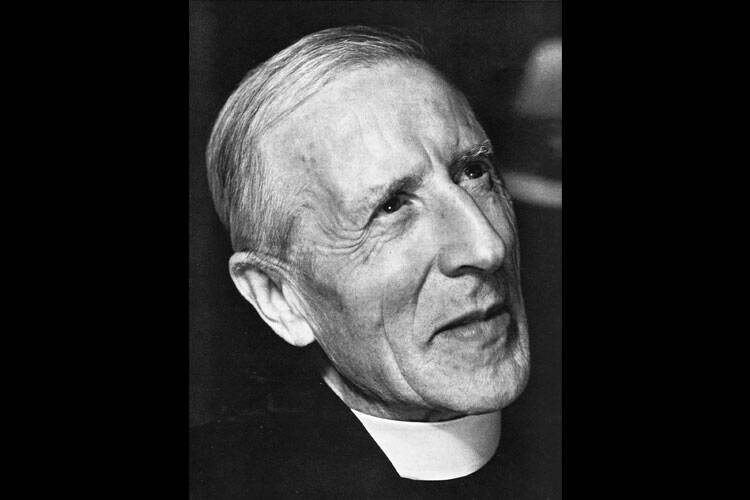I've always found his theology to be most interesting, as he blends science with spirituality.
Pierre Teilhard de Chardin, S.J., died 50 years ago in New York City. At the time, he was widely recognized in U.S. scientific circles for his work on the geology of Asia and his studies of Peking Man. Otherwise, he was virtually unknown. He had written abundantly in philosophy and theology, but church officials had prevented publication, although some of his essays were widely circulated during his lifetime in manuscript form. After his death, friends in Paris did what he had not been permitted to do; they published 13 volumes of his religious writings. By the time the Second Vatican Council began, less than a decade later in 1962, Teilhard had come to be regarded as a saint for the times. But his sanctity was unusual; it showed itself chiefly in a dedication to the world and secular work.

 www.americamagazine.org
www.americamagazine.org
Pierre Teilhard de Chardin, S.J., died 50 years ago in New York City. At the time, he was widely recognized in U.S. scientific circles for his work on the geology of Asia and his studies of Peking Man. Otherwise, he was virtually unknown. He had written abundantly in philosophy and theology, but church officials had prevented publication, although some of his essays were widely circulated during his lifetime in manuscript form. After his death, friends in Paris did what he had not been permitted to do; they published 13 volumes of his religious writings. By the time the Second Vatican Council began, less than a decade later in 1962, Teilhard had come to be regarded as a saint for the times. But his sanctity was unusual; it showed itself chiefly in a dedication to the world and secular work.

The legacy of Teilhard de Chardin: A French Jesuit’s radical fusion of science and spirituality
Teilhard was striving for sanctity by working in science, and this effort would require a new understanding of what it means to be holy.
